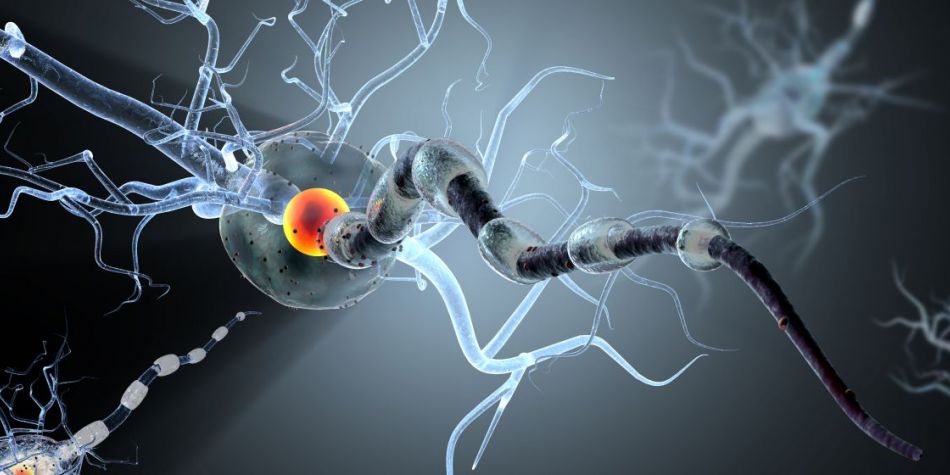
Our university-hospital team is interested in the modulation of neuroinflammation in multiple sclerosis, and in particular in the proinflammatory effects of the TWEAK cytokine.
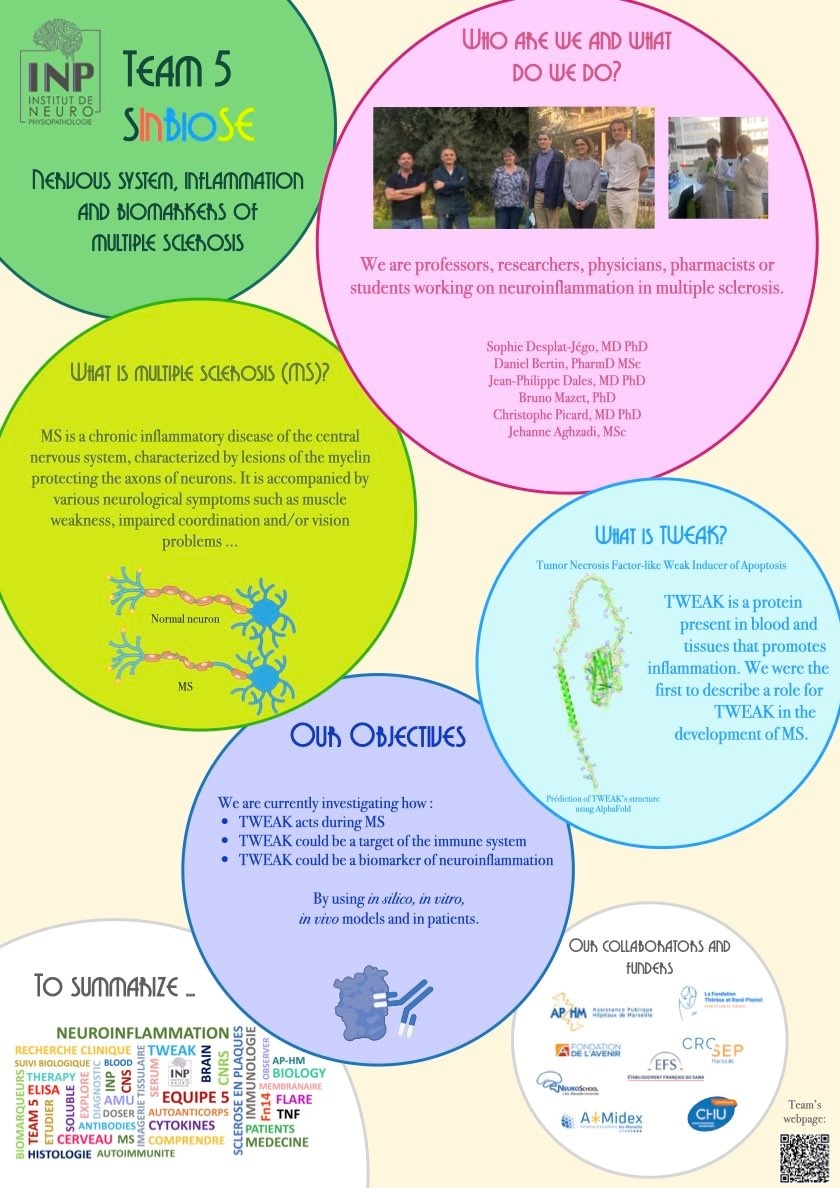

Our university-hospital team is interested in the modulation of neuroinflammation in multiple sclerosis, and in particular in the proinflammatory effects of the TWEAK cytokine.

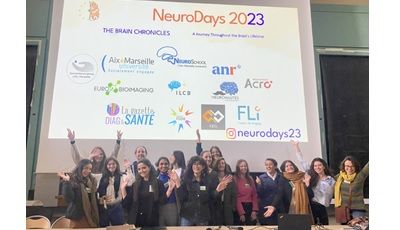
Jehanne Aghzadi était l'une des doctorantes organisatrices des NeuroDays de cette année, qui se sont déroulés à la Faculté St. Charles de Marseille, les 16 et 17 novembre 2023. Le thème abordé était celui du neurodéveloppement, de l'in utero jusqu'au vieillissement du cerveau. Jehanne a beaucoup apprécié les coulisses de l'organisation d'une conférence !
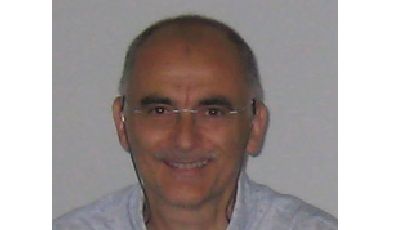
L’équipe 5 est heureuse d’accueillir parmi ses membres Bruno Mazet, enseignant-chercheur, maitre de conférences des Universités (AMU) en Physiologie. Ce spécialiste du système nerveux entérique va permettre à l’équipe d’explorer les liens entre cerveau et système digestif lors de la neuroinflammation au cours de la sclérose en plaques.
Bienvenue à lui !
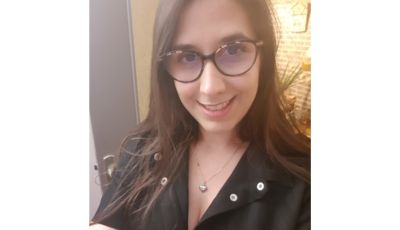
Episode 5: Manon ALVAREZ
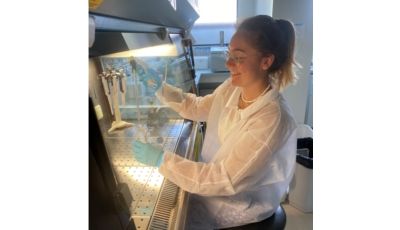
Episode 4: Charlotte Verschuere
Étudiante en Master 2 de Biologie Santé avec comme option les Neurosciences cellulaires et moléculaires à l’Université d’Angers, j’ai effectué un stage de 5 mois de janvier à mai 2023 au sein de l’équipe de Sophie Desplat-Jégo « Neuroinflammation et Sclérose en plaques » afin de finir mon cursus.
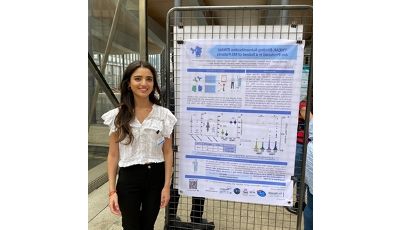
Jehanne Aghzadi, doctorante, a représenté l’équipe à la Conférence sur la sclérose en plaques (SEP) organisée par la Fondation ARSEP le 9 juin 2023 à l’Université de la Sorbonne, à Paris. Elle a pu y présenter un poster intitulé « TWEAK-binding autoantibodies are produced by a subset of MS patients ».
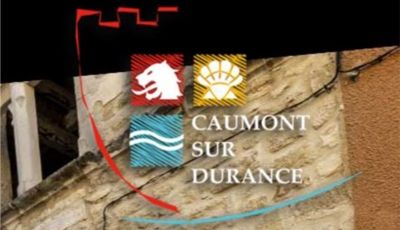
L’équipe 5 a participé à la 25ème édition de la Semaine du Cerveau
Dans le cadre de cet ensemble de manifestations scientifiques à destination du grand public, Sophie Desplat-Jégo est intervenu le 31 mars 2023 dans deux classes de Cours Préparatoire (CP) de l’école élémentaire de Caumont sur Durance dans le Vaucluse. Les petits élèves, déjà fort bien informés, se sont montrés très actifs dans ces échanges sur le fonctionnement de notre cerveau. Une belle expérience !
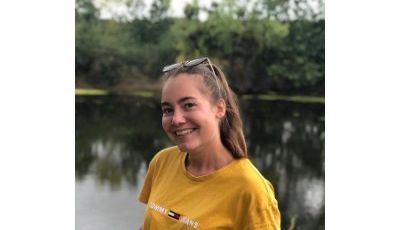
L’équipe 5 est heureuse d’accueillir Charlote Verschuere, étudiante en Master 2 pour un stage en laboratoire qui se déroulera du 01/01/2023 au 31/05/2023. Son sujet portera sur l'étude des origines et du devenir du TWEAK soluble.
Bienvenue à elle !
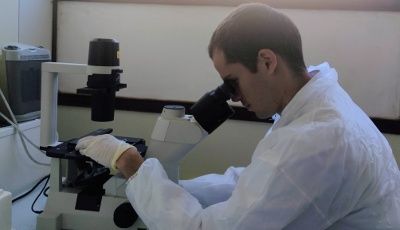
Episode 3: Louis BOYER
De mi-février à fin juin, j’ai eu la chance, deux après-midis par semaine, d’effectuer un stage dans l’équipe « Neuroinflammation et sclérose en plaques » de l’INP. Grâce à cette équipe qui a su m’intégrer, j’ai pu découvrir le monde de la recherche. De nombreuses activités m’ont été accessibles...